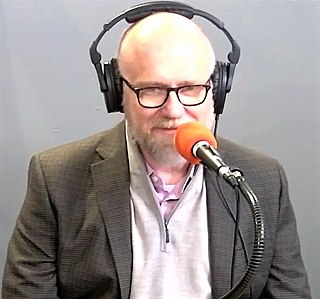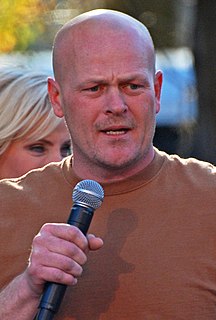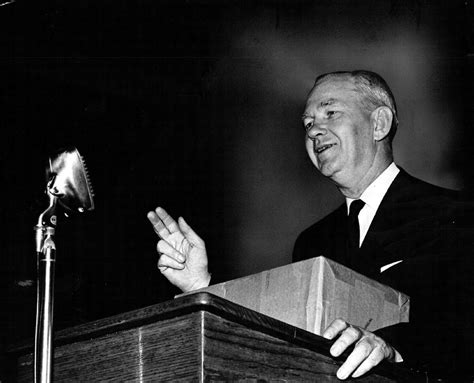A Quote by Rush Limbaugh
The Senate, compared to the House, is where things are supposed to slow down, by design, Founding Father design. The Founding Fathers were hell-bent to stop government action. The Constitution limited government. And that's why people like Obama and Democrats call it a charter of negative liberties because it limits government. It's an anti-government, pro-citizen document. And the founders wanted to make it hard.
Quote Topics
Action
Anti
Because
Bent
Call
Charter
Citizen
Compared
Constitution
Democrats
Design
Document
Down
Father
Fathers
Founders
Founding
Founding Fathers
Government
Hard
Hell
House
Liberties
Like
Limited
Limited Government
Limits
Make
Negative
Obama
People
Pro
Senate
Slow
Slow Down
Stop
Supposed
Things
Wanted
Were
Why
Related Quotes
It [the Constitution] didn't break free from the essential constraints that were placed by the founding fathers in the Constitution, at least as it's been interpreted, and the Warren court interpreted it in the same way that generally the Constitution is a charter of negative liberties. It says what the states can't do to you, it says what the federal government can't do to you, but it doesn't say what the federal government or the state government must do on your behalf. And that hasn't shifted.
Does the U.S. Constitution stand for anything in an era of government excess? Can that founding document, which is supposed to restrain the power and reach of a centralized federal government, slow down the juggernaut of czars, health insurance overhaul and anything else this administration and Congress wish to do that is not in the Constitution?
I am a Republican because I believe in the constitution, strength in national defense, limited government, individual freedom, and personal responsibility as the concrete foundation for American government. They reinforce the resolve that the United States is the greatest country in the world and we can all be eternally grateful to our founding fathers for the beautiful legacy they left us today.
Our leaders ranged from bad to extraordinary. But through it all, the GOP was the one party even vaguely amenable to limited-government conservatism, to at least some adherence to the Constitution over the social preferences of the moment, and to the constraints on government power that our Founding Fathers so cherished.
The Constitution was written to protect individual freedom and limit the ability of the government to encroach upon it. The liberals don't like that. The Democrats are very unhappy. The Constitution limits government too much. So they want to rewrite it, have a second Bill of Rights. So they want a new Bill of Rights that spells out what government can do instead of a Bill of Rights that tells government what it can't do.
That government is best which governs the least, so taught the courageous founders of this nation. This simple declaration is diametrically opposed to the all too common philosophy that the government should protect and support one from the cradle to the grave. The policy of the Founding Fathers has made our people and our nation strong. The opposite leads inevitably to moral decay.
But did the Founding Fathers ever intend for the federal government to involve itself in education, health care or retirement benefits? The answer, quite clearly, is no. The Constitution, in Article I, Section 8 - which contains the general welfare clause - seeks to restrain federal government, not expand it.
The Founding Fathers realized that "the power to tax is the power to destroy," which is why they did not give the Federal government the power to impose an income tax. Needless to say, the Founders would be horrified to know that Americans today give more than a third of their income to the Federal government.
Conservatism is about the basic rights of individuals. God created us. As far as the government goes, the Founding Fathers based the Constitution off of Christian values. It goes hand-in-hand. As far as the Republican Party? I felt connected to it because individual freedom should not be legislated by the federal government.

































